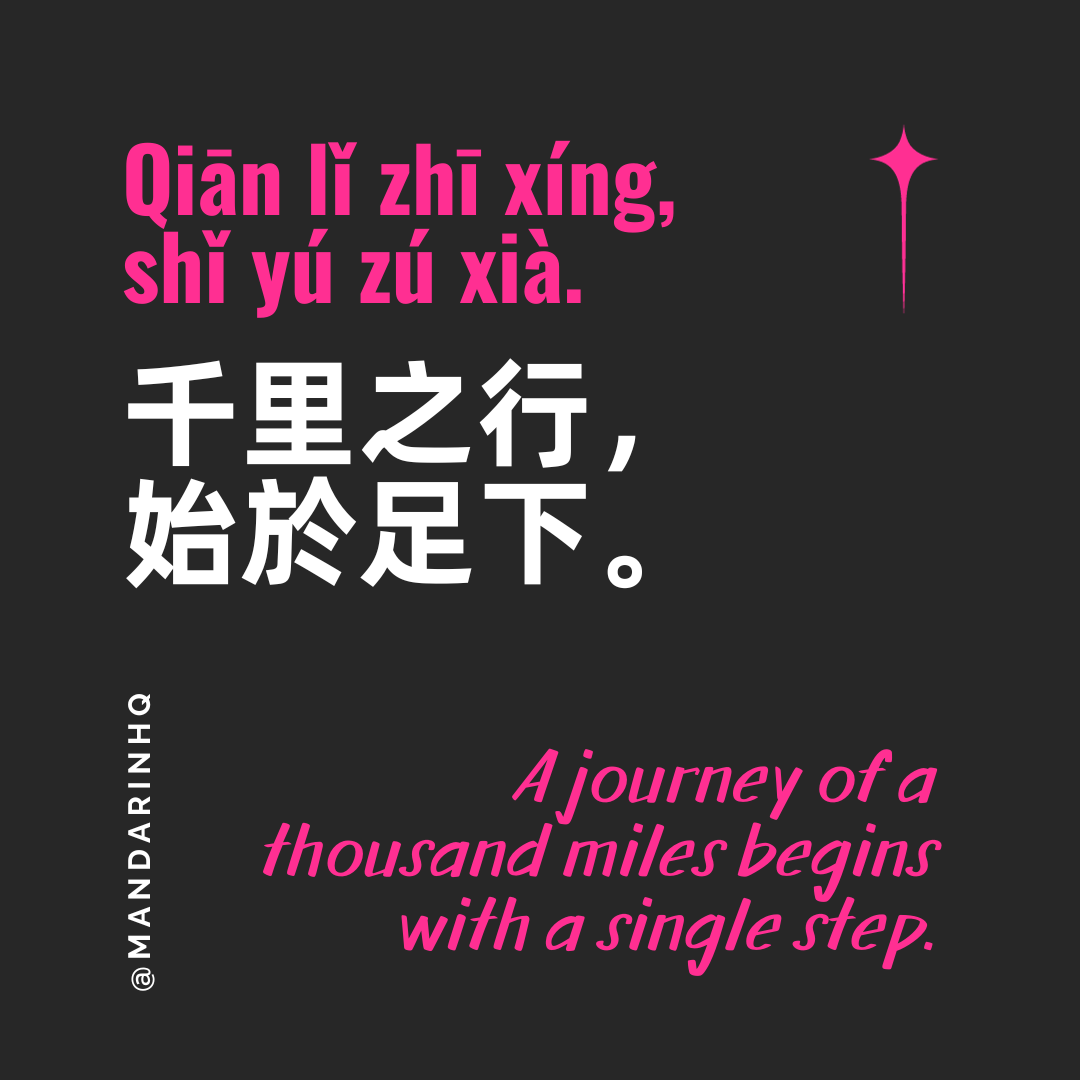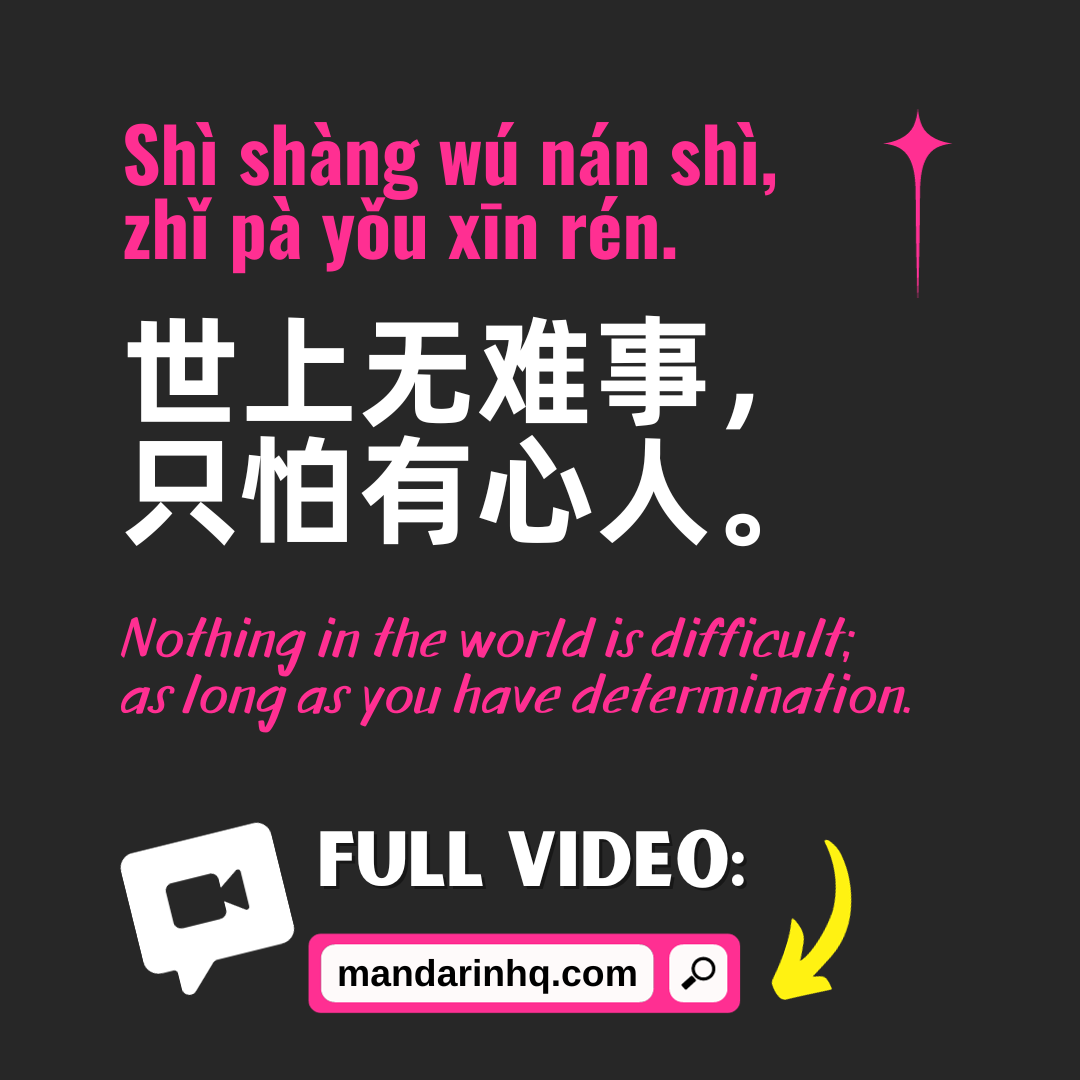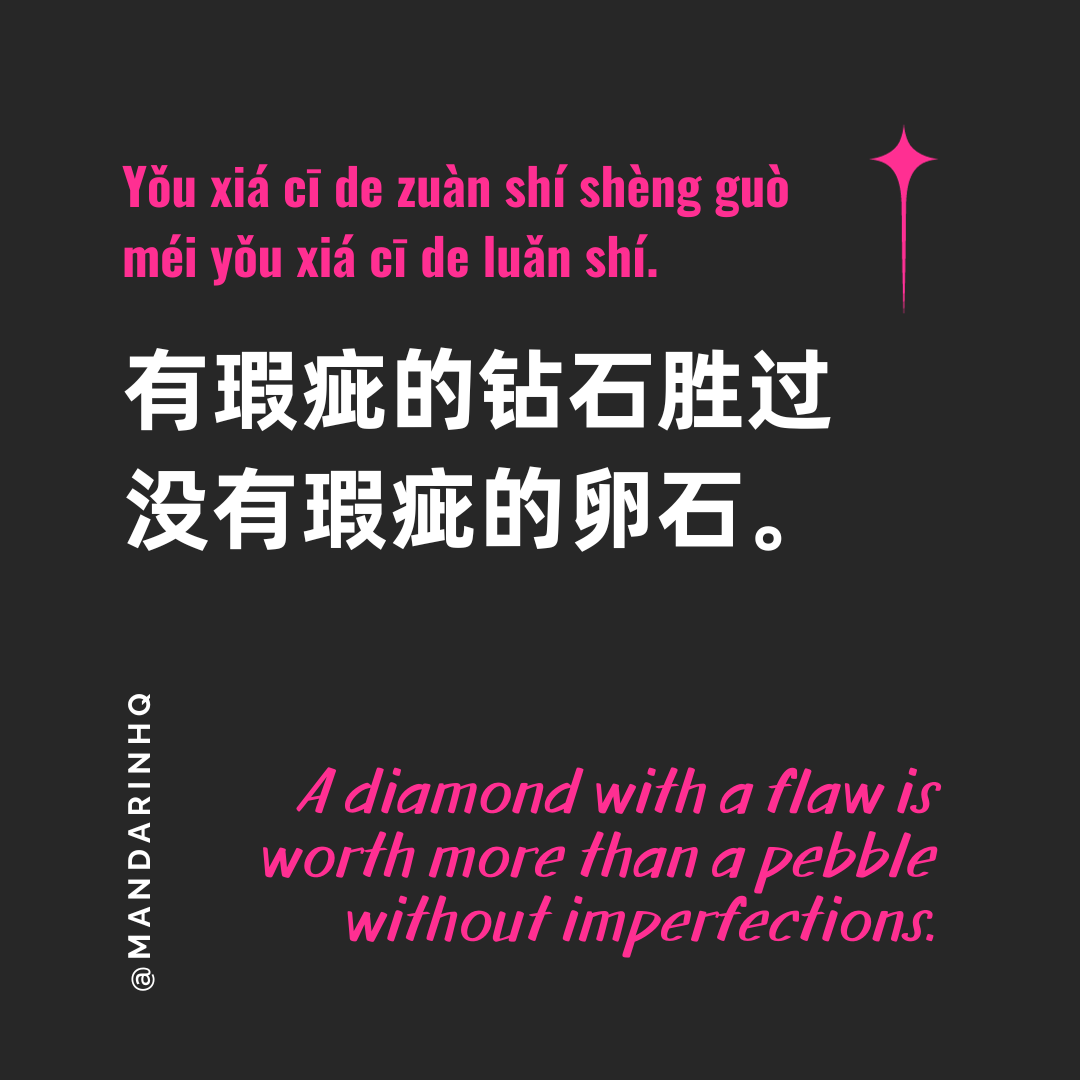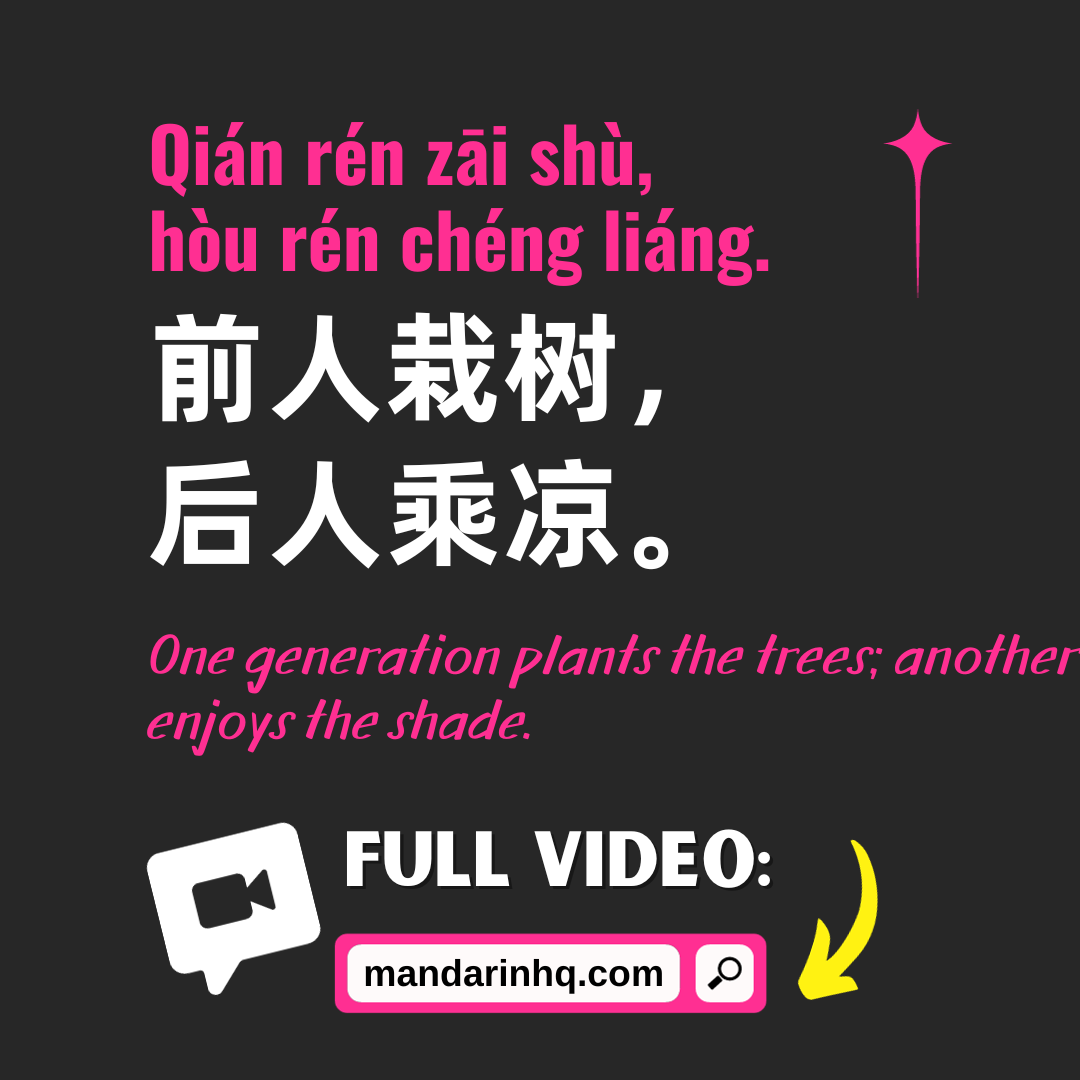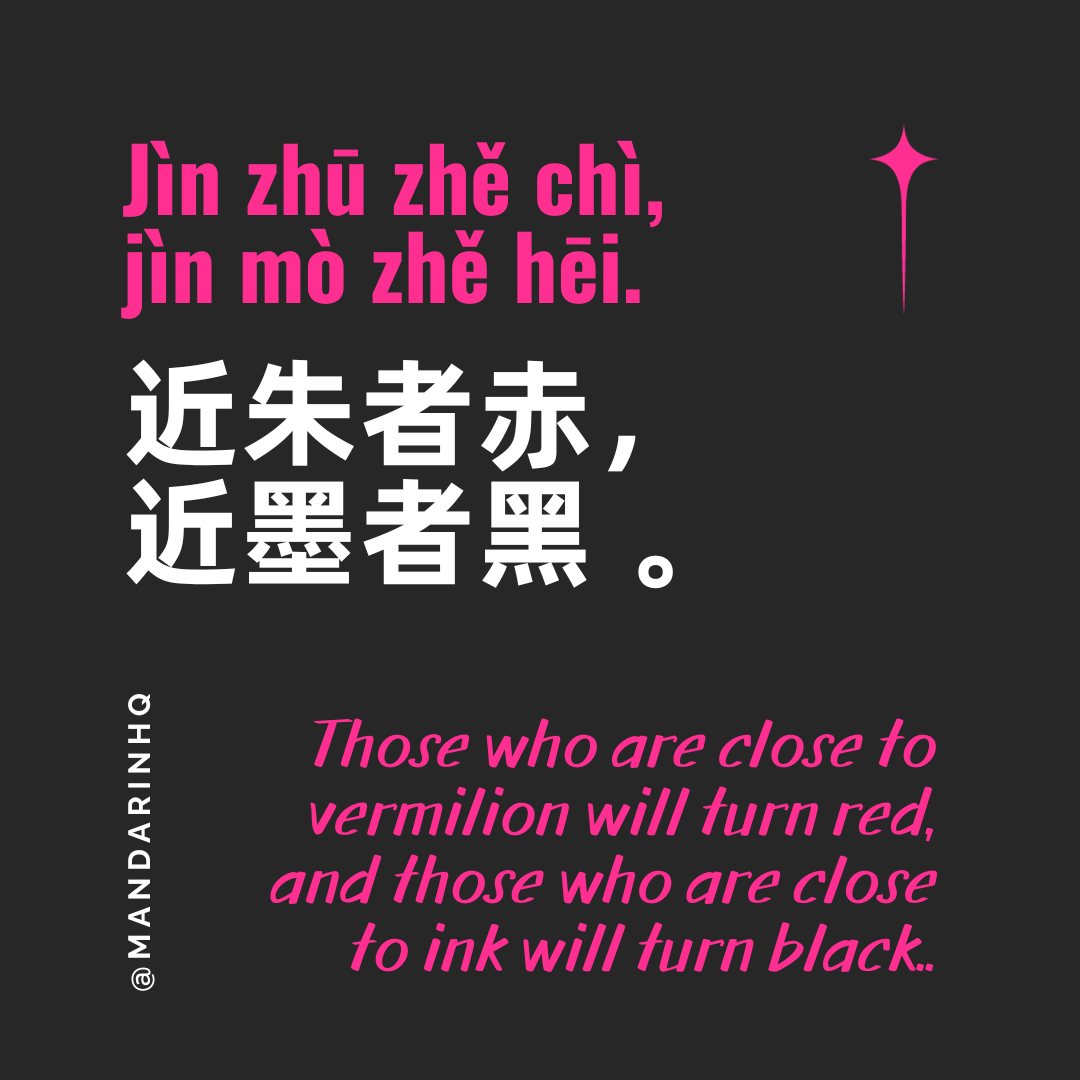Chinese culture is rich with wisdom and ancient proverbs that offer valuable insights into life.
These proverbs, passed down through generations, encapsulate profound truths and provide guidance for personal growth and success.
In this blog post, we will explore 10 life-changing Chinese proverbs that can inspire and empower you on your journey.
Summary of "10 Chinese Proverbs for Daily Conversations" From The Video Above
1. The proverb "千里之行,始於足下" (Qiān lǐ zhī xíng, shǐ yú zú xià) translates to "A journey of a thousand miles begins with a single step."
This proverb reminds us that every great achievement starts with a single action. So if you need to overcome hesitation and start working towards a goal, remember "千里之行,始於足下"
2. The meaning of "世上无难事,只怕有心人" shì shàng wú nán shì, zhǐ pà yǒu xīn rén.)
is: "Nothing in the world is difficult; as long as you have determination."
So "世上无难事,只怕有心人" (shì shàng wú nán shì, zhǐ pà yǒu xīn rén.)
reminds us that we can succeed if we’re willing to put in the effort. Like “If there’s a will, there’s a way.”
3. The proverb "种树最好的时间是20年前,其次是现在" (zhòng shù zuì hǎo de shí jiān shì èr shí nián qián, qí cì shì xiàn zài.) translates to:
"The best time to plant a tree was 20 years ago. The second-best time is now."
This emphasizes the importance of not dwelling on missed opportunities or regrets and instead focusing on the current moment and making the most of it.4. The meaning of "机不可失,时不再来" is: "Opportunities don't wait, time won't come again."
This phrase conveys the idea that opportunities are fleeting and should not be missed. It emphasizes the importance of seizing opportunities when they arise because they may not come again in the future.
5. The proverb "一分耕耘,一分收获" (yī fēn gēng yún, yī fēn shōu huò.) translates to: "One minute of hard work, one minute of harvest."
This proverb highlights the relationship between effort and reward. The amount of effort and work you put into a task correlates to the level of success you can achieve.
6. The meaning of the Chinese proverb "书山有路勤为径,学海无涯苦作舟"(shū shān yǒu lù qín wéi jìng, xué hǎi wú yá kǔ zuò zhōu.) is:
"There is a path up the mountain of knowledge, but it takes effort to reach it; the sea of learning has no limits, but one must work hard to navigate it."
The message here is that learning requires continuous dedication. We should embrace the process of learning, even when faced with difficulties, as the rewards and possibilities for growth are limitless.7. The meaning of the Chinese proverb "有瑕疵的钻石胜过没有瑕疵的卵石" (yǒu xiá cī de zuàn shí shèng guò méi yǒu xiá cī de luǎn shí.) is:
"A diamond with a flaw is worth more than a pebble without imperfections."
The phrase highlights the concept of appreciating the unique qualities and characteristics that come with imperfections. Flaws can add character and value to an object or individual, making them more desirable and precious.8. The proverb "前人栽树,后人乘凉" (Qián rén zāi shù, hòu rén chéng liáng) translates to "One generation plants the trees; another enjoys the shade."
This means that the work and sacrifices made by previous generations create opportunities for us to enjoy. It reminds us to appreciate the efforts of those who have paved the way for our well-being and success.9. The proverb “近朱者赤,近墨者黑" (Jìn zhū zhě chì, jìn mò zhě hēi) translates to "Those who are close to vermilion will turn red, and those who are close to ink will turn black.”
The idea here is that your character and behavior can be influenced by the company you keep. If you surround yourself with virtuous and positive people (symbolized by vermilion), you are more likely to develop good qualities. And if you associate with negative or immoral people (symbolized by ink), you may be influenced negatively. So remember 近朱者赤,近墨者黑。#10
10. The proverb "远水解不了近渴" (Yuǎn shuǐ jiě bù liǎo jìn kě) translates to "Distant water cannot quench immediate thirst."
When facing a problem, we should avoid getting lost in far-fetched ideas or unrelated options. Instead, we should focus on addressing immediate needs with practical and accessible solutions. 远水解不了近渴 (Yuǎn shuǐ jiě bù liǎo jìn kě).You might also find these posts interesting:


